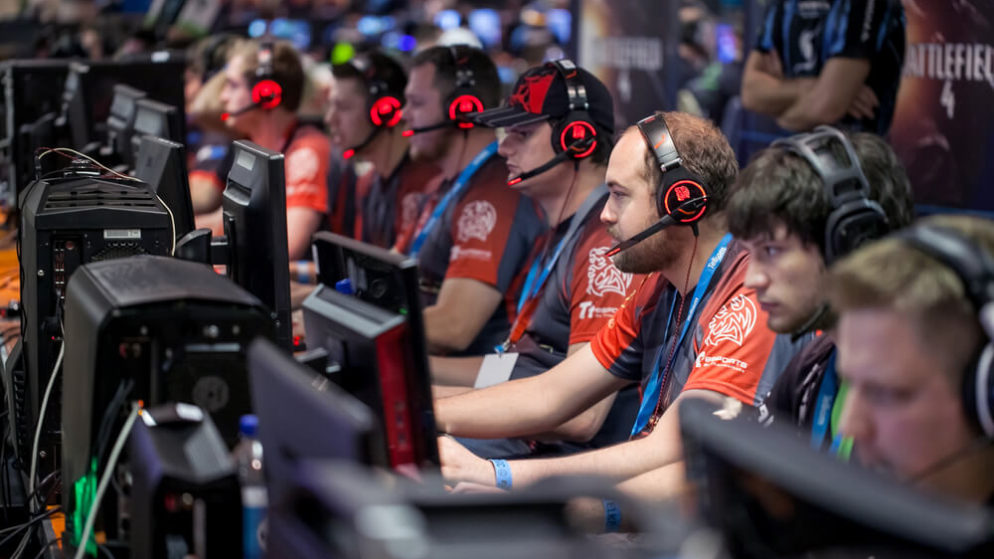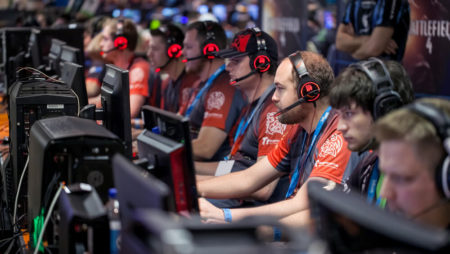

January set a new record in New Jersey for sports betting; the first month of 2020 saw $540.1 million wagered. Likewise, the state’s sportsbooks saw their revenue increase almost by three to $54 million for the month.
Undoubtedly, the February 2, Super Bowl championship game had something to do with the massive amount of money bet. However, the Garden State has risen to the top of sports betting; since the Supreme Court struck down the federal law prohibiting wagers on sports in 2018, New Jersey has become the country’s undisputed sports betting capital.
Now, New Jersey wants to capitalize on that leadership by expanding legalized gambling into esports. It would simply be the next logical step since legalizing sports betting in 2018.
What we cover
Esports is the way of the future
Esports are huge and they’re only getting bigger. Newzoo, a data analytics firm, reported that global revenue for esports exceeded $1 billion in 2019. Furthermore, viewership is predicted to reach 646 million fans by 2023; that’s a 9% compound annual growth rate according to BusinessInsider.
More importantly, the biggest names in technology, including Apple, Alphabet’s Google, and Microsoft, are in heavy competition for their respective market shares for live-streaming esporting events.
Currently, China’s Tencent is the world’s largest esports company. Tencent generated more than $20 billion from the esports industry. However, Korea’s Sony is a close second, and Google and Activision Blizzard are partnering to stream esporting events from the cloud.
To put it simply, esports presents a huge opportunity, which is why the gambling industry naturally wants to get in on the action.
Esports: A logical extension of traditional sports
New Jersey legislators have introduced a bipartisan bill, aimed at legalizing esports betting. According to the bill, there would only be a few exceptions to legalization, such as esports affiliated with or sponsored by a high school, or events in which most of the competitors are under 18.
Using New Jersey’s 2018 sports betting legislation as a template, the new esports bill would expand the definition of a sporting event to include any skill-based attraction. That would also include awards competitions, such as the Oscars, and even competitive eating contests. New Jersey state gambling law was recently changed to allow wagers on video game tournaments in which the participants are adults. So further amending the law to include esports seems like the next step.
The good news is, the gambling enforcement division did allow sportsbooks to accept bet placed on esports’ League of Legends World Championship last year. That esports event was held in Paris, and ran from October to November, 2019.
Esports Aids Atlantic City
Support for the esports bill is inspired by the need to keep Atlantic City thriving. New Jersey has been at the tip of the spear, making gambling more accessible on the East Coast. New Jersey also pioneered online gambling, fueled largely by DraftKings, partnered with Resorts Atlantic City and FanDuel, which is partnered with the Meadowlands Racetrack.
According to New Jersey state law, online gambling websites and sportsbooks must be affiliated with either a racetrack or a physical casino.
Both DraftKings and FanDuel have filed for an IPO. These two sportsbooks control nearly 80% of the online gambling market in New Jersey through their partnerships with Resorts Casino and Meadowlands Racetrack. However, FanDuel is by far the largest U.S. sportsbook with a 60% market share.
Despite all this, only half of New Jersey’s 10 operators reported seven-figure sports betting revenue in January. It’s hoped that by expanding the law to include esports, Atlantic City casinos could gain in popularity with the Millennial Generation.
| New Jersey Sports Betting Gross Revenue-January 2020 | |||
| Retail Revenue | Online Revenue | Total Revenue | |
| Bally’s | $164,575 | $491,164 | $655,739 |
| Borgata | $723,927 | $2,460,264 | $3,184,191 |
| Golden Nugget | $116,266 | $431,643 | $547,909 |
| Hard Rock | ($4,467) | $340,933 | $336,466 |
| Harrah’s | $107,424 | $0 | $107,424 |
| Ocean Casino | $377,369 | $1,963,678 | $2,341,047 |
| Resorts Casino | $163,436 | $15,895,379 | $16,058,815 |
| Tropicana | $100,288 | $74,379 | $174,667 |
| Meadowlands Racetrack | $4,275,047 | $22,197,511 | $26,472,558 |
| Monmouth Racetrack | $883,716 | $2,799,094 | $3,682,810 |
While gambling at brick-and-mortar casinos is something that appeals to older people, the age range of gamblers who bet online are mostly between the ages of 25 and 34. That age bracket makes up more than 35% of the total. On the other hand, the average age of esports players is around 21 for League of Legends and 25 for Super Smash Bros. Melee.
Surprisingly, the average age of esports fans is 28, which is older than many of the researchers initially thought. However, when compared to major league sports championship games, where the average age of the fans is in their 40s, twenty-eight seems quite young. The young, esports demographic is also surprisingly prosperous, with an average income of $50,000 or more.
Esports is the next big thing
Esports wagers are simply the next logical step, and New Jersey could once again be a pioneer if the bill passes. Fortunately, the bill has bipartisan support in the legislature ‘s lower house, and the state’s gambling regulator fully supports it.
Since online gambling is the only thing that’s seen real growth in New Jersey, expanding the law to esports could be a major growth opportunity. If the bill passes, Atlantic City will certainly host more esports tournaments, similar to the one that was held at Caesars Resorts casino in 2017. In that way, esports will not only benefit the gambling industry, but all of the hotels, bars, and restaurants in Atlantic City too.








